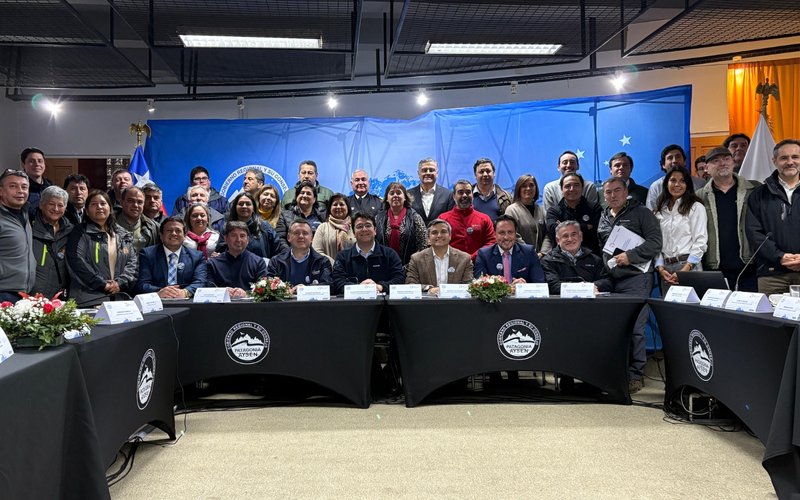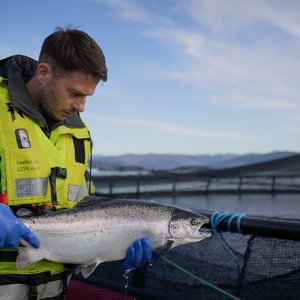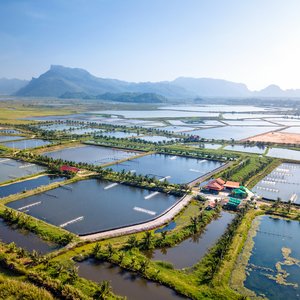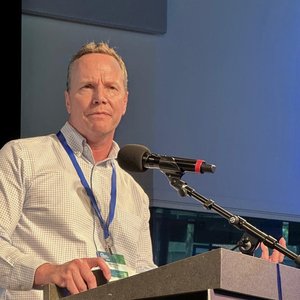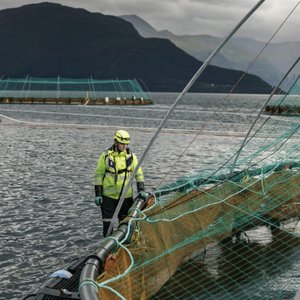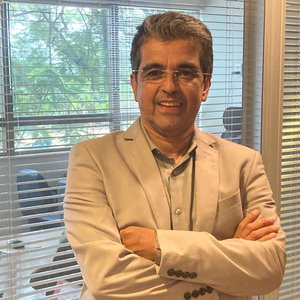SalmonChile participated in the Salmon Plan 2050 session held in the Aysén Region, Chile, where representatives from regional authorities, unions, companies, workers, suppliers, and universities met to consolidate a proposal to guarantee legal certainty and the sustainable development of salmon farming in the south of Chile.
The session was convened by the regional governor of Aysén, Marcelo Santana, and brought together virtually all stakeholders from the Southern Austral Macrozone, making progress in the development of concrete proposals to be presented to President Gabriel Boric and the presidential candidates.
In this context, SalmonChile's corporate affairs manager, Tomás Monge, stated: "We are very motivated by the outcome of this session held in the Aysén region. We are witnessing an activity and an initiative that brings together authorities from different regions of the country, mayors, regional governors, parliamentarians, workers, suppliers, academia, unions, and companies, with the goal of achieving concrete initiatives to provide certainty to this activity, which is so important for the south region."
"We greatly value the fact that we are already making progress on concrete and pilot measures to develop these reactivation measures. All we have to do is continue working and continue putting all our commitment into ensuring that this unprecedented plan continues to grow and continues to generate a roadmap for the activity," Monge added.
The mayor of Puerto Montt, Rodrigo Wainraihgt, the main driving force behind this plan, emphasized: “We have established clear objectives to achieve. The challenge lies in delivering them to the relevant authorities, in this case to the President of the Republic, Gabriel Boric, but also to the presidential candidates. It is necessary to understand the position of each of them so that they can integrate this Salmon Plan 2050 as a public policy into their government projects.”
The host governor, Marcelo Santana, emphasized: “The development of Chile's southern regions cannot be eternally subject to decisions made outside of these regions. Currently, we have concrete products of robust proposals that will be delivered to those who make the decisions.”
The plan's proposals have been structured around five fundamental and interconnected pillars to comprehensively address the industry's challenges:
- Urgent progress is being made in relocating concessions from protected areas to more suitable zones, prioritizing those with the best environmental and health potential.
- It is proposed to strengthen decentralization, increasing the powers of regional governments in both territorial planning and the granting of concessions, while establishing permanent community participation mechanisms.
- It is considered essential to review the national policy on coastal use with a regional perspective and to modernize the Lafkenche law to generate more efficient and transparent processes.
- The plan addresses compatibility with protected areas, seeking to provide legal certainty regarding existing concessions while ensuring environmental sustainability and improving management plans based on scientific, technical, and objective criteria.
- Improvements to competitiveness are contemplated through the optimization of administrative regulations, the simplification of environmental assessment processes, the reform of grounds for expiration, and the streamlining of key sectoral processes such as the granting of concessions, all with the aim of strengthening a sustainable industry that continues to contribute to regional development.
Monge emphasized the opportunity this process represents: "We have the opportunity to count on the backing and cross-party support of parliamentarians, regional authorities, mayors, governors, and especially social groups such as our workers, our suppliers, and academia to be able to advance this type of initiative. Therefore, we greatly value this opportunity, which, as a sector, we clearly must seize and put all our efforts into continuing to strengthen this macro-regional alliance."
It was agreed that the next session of the Salmon Plan 2050 will be held in Punta Arenas, thus continuing the joint work that seeks to establish a state policy for the sustainable development of Chilean salmon farming.


